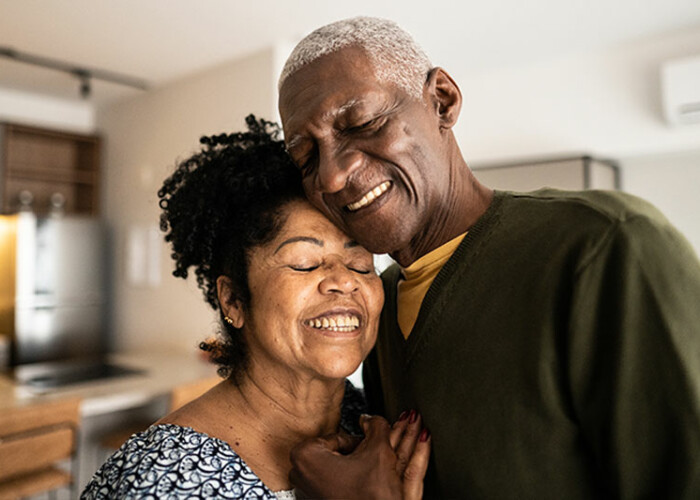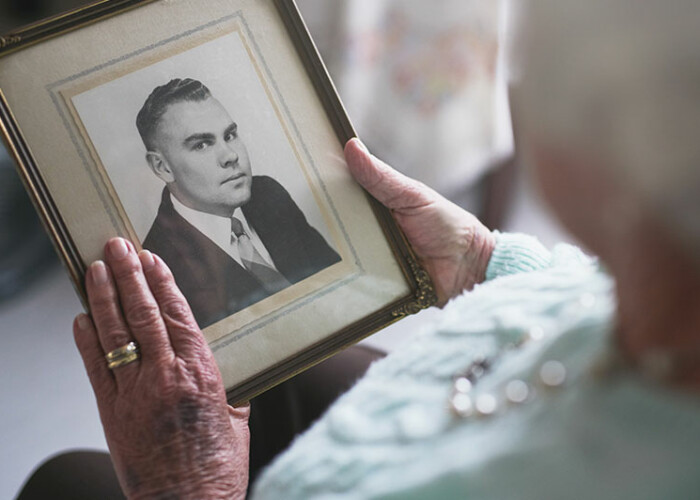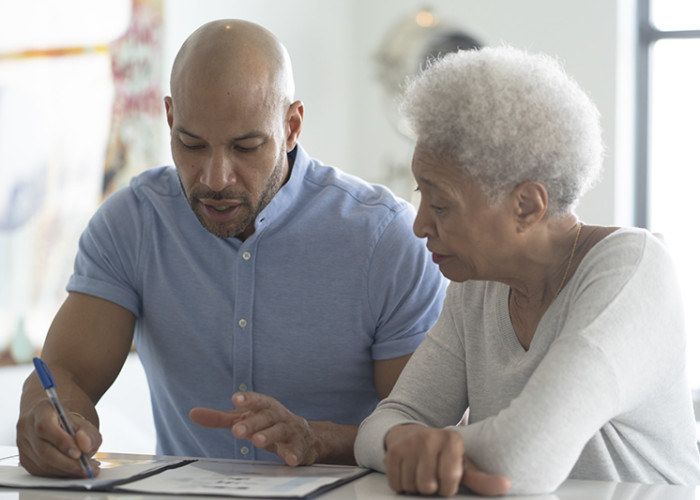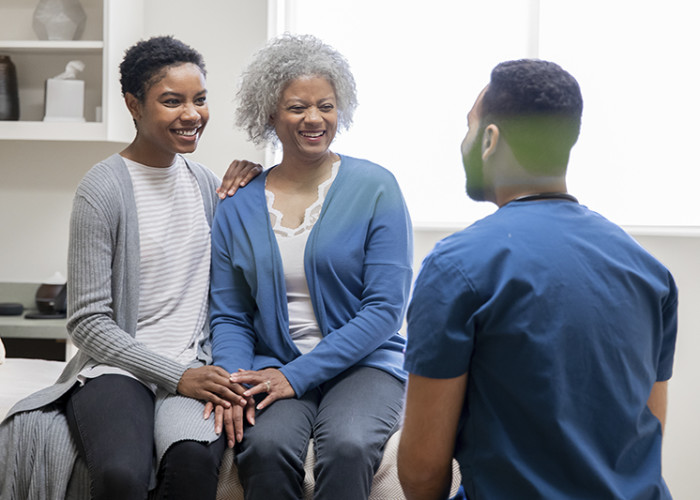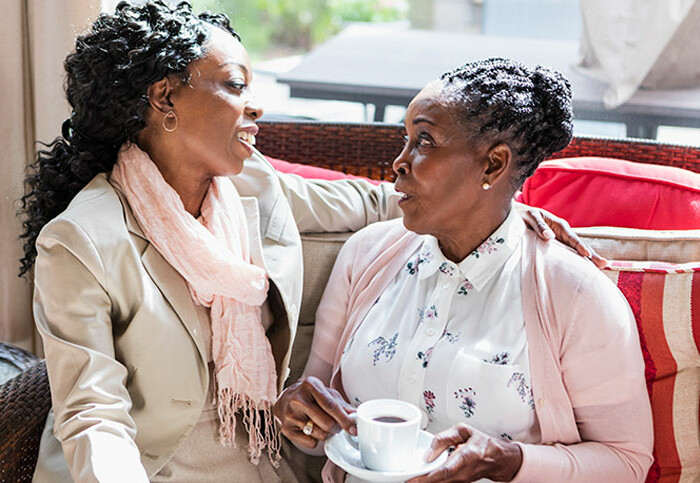Care Manager
How to Be a Partner and Not a Parent as a Spousal Caregiver
We have tips to help you maintain your relationship while being a spousal caregiver.
Healthy, long-term relationships take commitment, sacrifice, and compromise. The happiest relationships are those where both parties selflessly take care of each other. This balance shifts, however, if the person you love experiences a significant health concern. And this shift can have a devastating effect on the dynamics of your relationship if you’re not vigilant, as you find yourself in the role of a spousal caregiver.
It’s natural to want to help your spouse in whatever way you can as their health needs change. However, it’s vital that you ensure you are not sacrificing your romantic connection in the process. Attempting to parent your partner can result in resentment – for both of you. To promote healthy boundaries, keep the following in mind:
• Find … Read More »
Broken Heart Syndrome: How to Help a Loved One Who Is Grieving
It’s not easy to know how to help a loved one who is grieving, but these tips are a great place to start.
In his documentary about grief, George Shelley uses an analogy of glitter. Toss a handful of glitter into the air, and it’s going to settle into all the cracks and crevices of the room, impossible to fully sweep up and remove. Those who have lost a loved one can relate. Yet in certain instances, grief could be so overwhelming that it could result in a serious and aptly named condition: broken heart syndrome.
Broken heart syndrome is a very real physical condition from the intense stress experienced in certain types of grief (such as one spouse losing the other after decades of marriage). The medical term is takotsubo cardiomyopathy, a temporary enlargement of the heart … Read More »
Feeling Overloaded With Caring for a Loved One? These Tips Can Help!
If you’re feeling overloaded with caring for a loved one, we have three simple steps you can take to ease the strain.
If today’s to-dos seem like a lot more than you are able to possibly squeeze into 24 short hours, you are not alone! Family caregivers frequently are feeling overloaded with caring for a loved one and the daily required tasks: Personal care and hygiene. Planning and preparing meals. Medical appointments. Planning activities that are purposeful and enjoyable for the older adult. Shopping and other errands. Housework and laundry. And all of this is on top of meeting the requirements of your own spouse, children, household, and if there is any time left over, yourself!
We invite you to hit the pause button for just a minute, take a deep breath, and put into action these tried-and-true … Read More »
Take These Steps to Avoid Overmedication and Adverse Medication Reactions in Seniors
Taking too much or too little of a medication or taking it the wrong way can lead to adverse medication reactions in seniors.
The days of “take two aspirin and call me in the morning” have morphed into “take two of these…and two of these…and maybe one of those, too!” Nearly forty percent of seniors are taking at least five different prescription medications each day – not to mention vitamins, supplements, and OTC meds. It is easy to understand why overmedication and adverse medication reactions in seniors are extremely common.
Take these actions to avoid medication problems for someone you love:
Make a list, and check it twice. Create a list of every one of the medications – both over-the-counter and prescription – that the person is currently taking. Share the list with all of their healthcare providers, and … Read More »
How to Manage Feeling Unappreciated as a Caregiver
These three simple steps can help if you’re feeling unappreciated as a caregiver.
From the moment you started your day until its end, you’ve dedicated yourself entirely to the well-being of an older loved one. Your tasks ranged from assisting with daily activities to managing appointments and household chores, all performed with love and dedication. Yet, the acknowledgment you deserve is often absent, leaving you feeling unappreciated as a caregiver. Left unchecked, this can lead to caregiver burnout or depression.
If you’re experiencing this, know that you’re not alone. Here are some tips to help navigate and address the challenge of feeling unappreciated in your caregiving role.
1. Practice Self-Appreciation:
Acknowledge the importance of the work you’re doing and prioritize self-appreciation. Take a moment each week to reward yourself for a job well done. It … Read More »
Do You Need a Guardian for a Senior Parent?
Learn when it’s a good idea to designate a guardian for a senior parent.
In an ideal world, our family relationships would all be helpful and positive. We would manage transitional times cooperatively, smoothly, and without any disagreement. As our parents grew older, it would be a simple process to satisfy their current needs and their changing future needs.
4 Ways to Better Advocate for Your Older Loved Ones
Being a better advocate for your older loved ones begins with these four tactics.
“Unless someone like you cares a whole awful lot, nothing is going to get better. It’s not.” – Dr. Seuss, The Lorax
Serving as an advocate for your older loved ones is perhaps one of the greatest honors – and responsibilities – you’ll have as a family caregiver. It means fully comprehending their needs and wishes, and communicating them to those who can help to make sure they’re achieved.
Feeling Worn Down? Try These Ideas to Gain Energy as a Caregiver!
These four simple tips can make a big difference in helping you gain energy as a caregiver.
Providing care for someone else can be exhausting. Add in the shortened daylight hours of fall that we’re beginning to experience, along with the everyday stressors in life, and it’s no wonder so many of us are feeling worn down and sluggish. Try these ideas from our home care team to help you shift from feeling fatigued to fabulous and gain energy as a caregiver.
Consume more high-energy, complex carbs. If the hectic pace of life or simply ingrained habits have you grabbing a quick bowl of sugary cereal for breakfast, snacking on chips and soda, and seeking out comfort foods like macaroni and cheese or white bread, it’s only natural for your energy level to be sapped. Instead, choose whole grains, … Read More »
How to Care for Someone With a Progressive Disease
These tips will guide you in how to care for someone with a progressive disease.
It might have been expected, or perhaps broadsided you without warning. Mom has just received the official diagnosis for a progressive disease that is likely to make independent life difficult. While there are a number of uncertainties, one thing is for sure: she is adamant about remaining at home – meaning you’ll have to learn how to care for someone with a progressive disease.
Welcome to the world of family caregiving! If you’re feeling a bit overwhelmed with what can be expected next, these recommendations will help.
Discover as much as you’re able to about the disease. The older adult’s doctor can provide you with resources and educational materials to help you know what to anticipate and to gain confidence in your caregiving role.
Prioritize … Read More »
How to Overcome Sleeping Problems in Dementia
Try these tips to help someone experiencing sleeping problems in dementia get a better night’s rest.
If it seems like a senior with dementia has completely rewritten the rules on when and how to sleep, you’re not dreaming. For reasons that aren’t yet fully understood, sleeping problems in dementia are quite common. Changes to the senior’s circadian rhythm lead to drowsy days and sleepless nights.
The development of the disease is one contributing factor. Damage to brain cells causes increased weakness, making everyday tasks and activities exhausting. Medication side effects from commonly-prescribed dementia treatments can further exacerbate the issue.
Why Is a Good Night’s Sleep Crucial for a Loved One with Alzheimer’s?
Decreased sleep quality in dementia may bring about an increase in restlessness and delusions, and can cause serious safety concerns, such as the potential for an … Read More »


